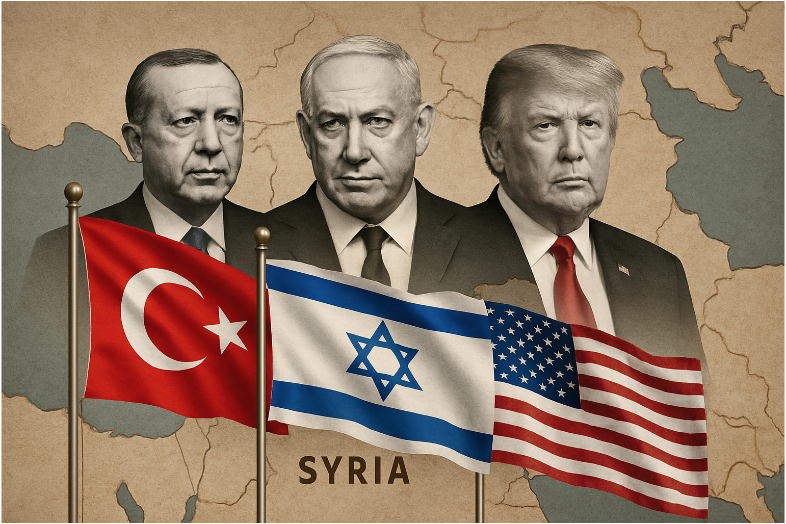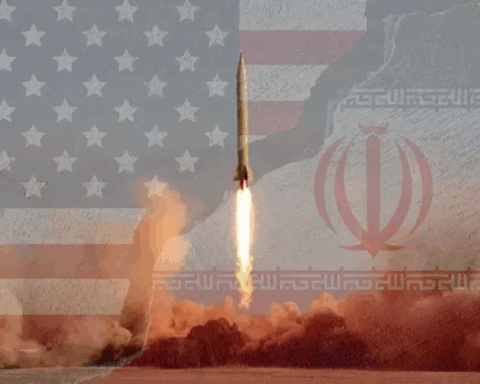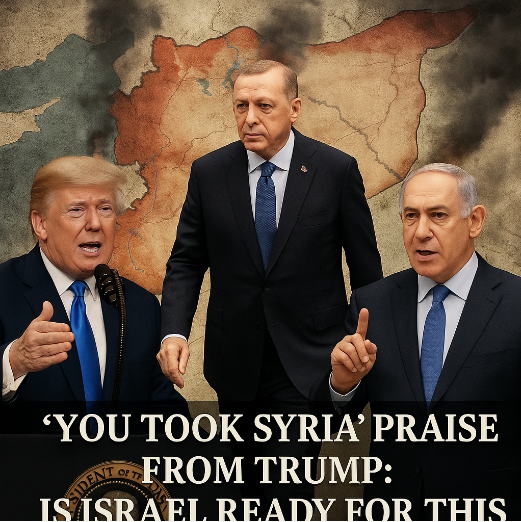The Middle East is being reshaped once again. Old alliances are dissolving, and new equations are emerging. Recent developments in Syria have turned the region into a theater of not just regional but global geopolitical contest. In this chessboard of power, the shifting positions of Turkiye, Israel, and the United States demand close attention.
Recent statements and visits—particularly those involving the Israeli Prime Minister and the former U.S. President—signal that new negotiations are taking place behind closed doors. Israel’s long-standing goal of preventing a unified and sovereign Syria remains central to its regional policy. These efforts are driven by both security concerns and a desire to prevent the emergence of rival power structures in the region. However, this time, things are not going according to plan.
Turkiye stands in stark contrast to this approach. Advocating for Syria’s territorial integrity and national sovereignty, Ankara is pushing for regional stability—not just for its own security or the return of refugees, but also for broader goals such as regional trade, energy routes in the Eastern Mediterranean, and restoring ties with the Arab world.
The U.S., particularly under Trump, views the Middle East from a different lens. His administration prioritized the global competition with China and saw regional conflicts as distractions from this larger battle. Trump’s statements clearly show that while he may be willing to negotiate on Gaza, he is not interested in deep involvement in Syria. He has no intention of giving Netanyahu a blank check. Israel’s attempts to revive influence through the YPG/PKK in Northern Syria have fallen short. Even efforts to split the country using the Druze population failed, as most declared their support for a united Syria.
Meanwhile, Israel finds itself increasingly isolated. Without American support, it cannot embark on new military ventures in Syria. The days of swift, multi-front strikes may be over. Turkiye’s growing influence, combined with its regional diplomacy, poses a serious counterweight to Tel Aviv’s plans. And perhaps most critically, Israel’s attempts to delegitimize a restored Syrian government on the world stage are also failing.
On another front, U.S.-Iran relations are entering a cautious new phase. Despite the history—Trump’s withdrawal from the nuclear deal and the assassination of General Qassem Soleimani—there are now indirect talks underway. However, this has caused friction inside Iran, where officials struggle to reconcile Trump’s rhetoric with diplomatic engagement. While talks are mediated through Oman, Tehran is skeptical but willing to test Washington’s sincerity.
Still, Washington’s message is firm: Iran must not develop nuclear weapons. Trump’s strategy combines military posturing with diplomacy to raise pressure and extract concessions. But neither regime change nor a full-scale war seems to be on the table.
The broader geopolitical context is also shifting. The U.S. is escalating trade tensions with China and issuing fresh sanctions. Iran finds itself increasingly isolated—pressured in Yemen, weakened in Syria, and even losing ground in Lebanon and Iraq. The era that began with the Arab Spring, which opened doors for Iranian influence, now seems to be closing.
In this complex landscape, Turkiye emerges as a stabilizing actor. Unlike Israel’s militaristic approach, Turkiye prioritizes regional stability and reconstruction. Its stance resonates with the people of the region, who are weary of war and displacement. While Israel continues to bomb Syrian targets, hoping to derail the process of recovery, it is becoming clear that chaos no longer serves its strategic interests as effectively as it once did.
The Middle East is evolving into a multi-polar arena, with Turkiye, the U.S., Iran, Israel, and even Russia and China each seeking their place. In this dense web of interests and rivalries, Turkiye’s pragmatic and stability-focused diplomacy might prove to be the most sustainable strategy. Time will tell whether this balance holds—or if yet another wave of conflict reshapes the region.
- Tension Between Donald Trump and Elon Musk: Is a Major Crisis Beginning in the American System? - June 6, 2025
- Harvard Faces Federal Funding Freeze Over Alleged “Disrespect to the Nation,” Says McMahon - May 6, 2025
- Tariffs, Troubles, and Transition: A Tumultuous Week for the U.S. and NYC Economy - May 6, 2025








